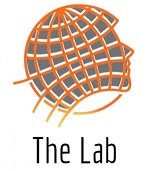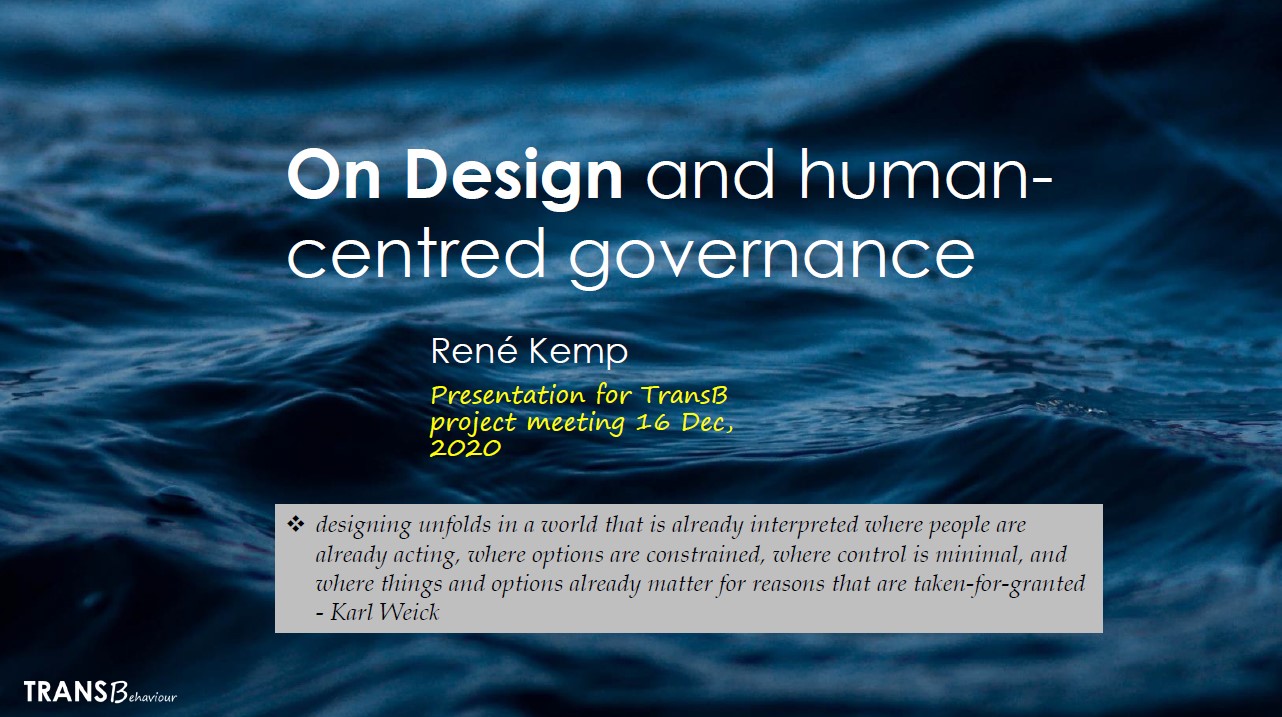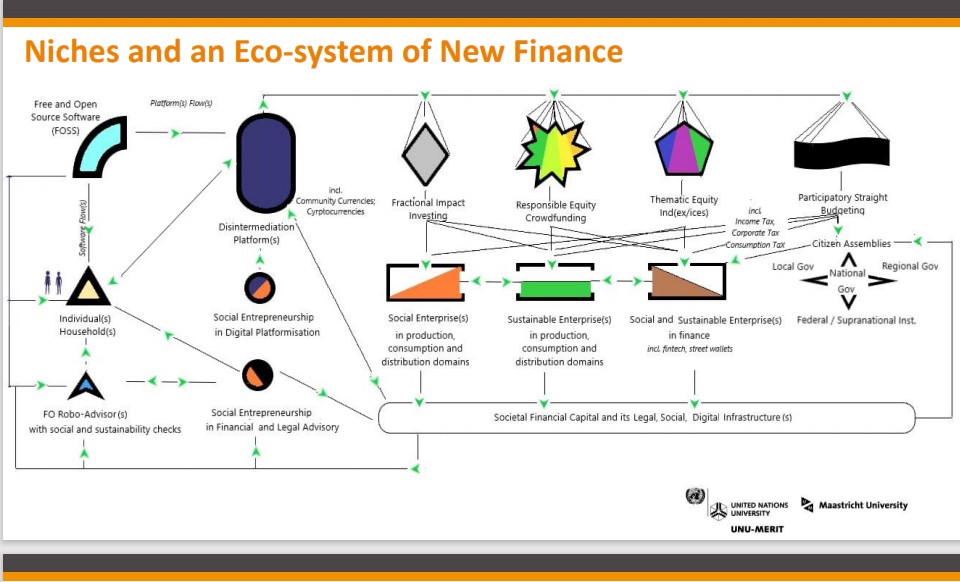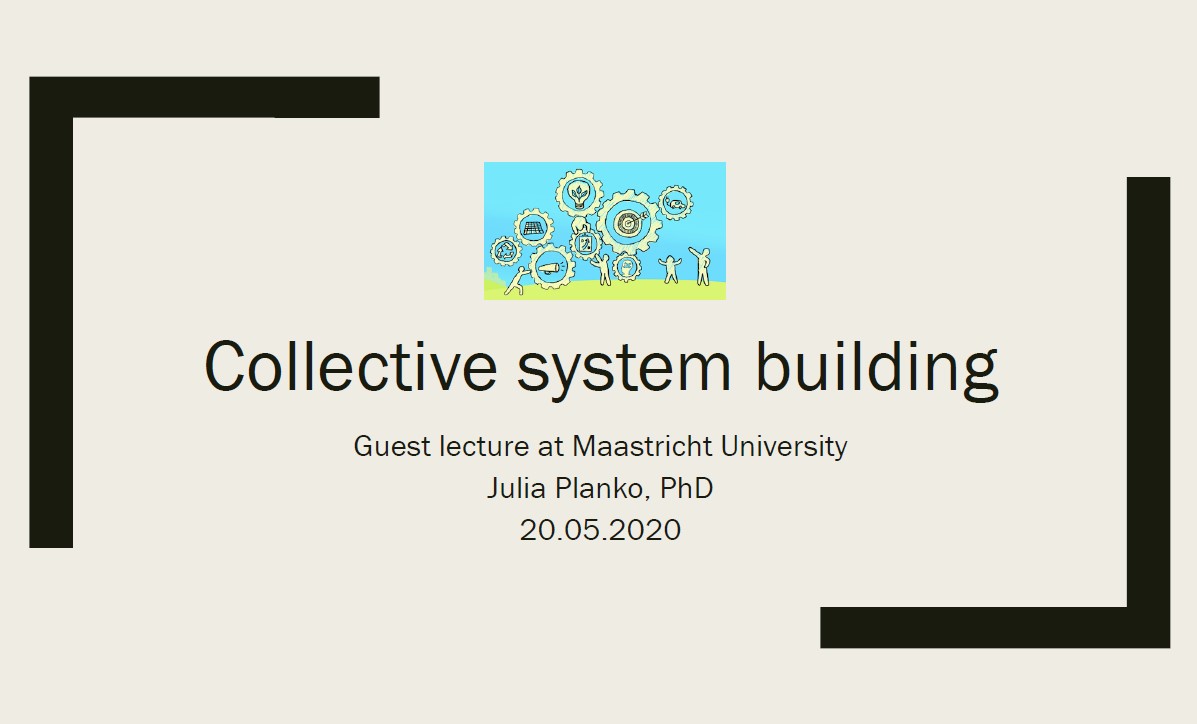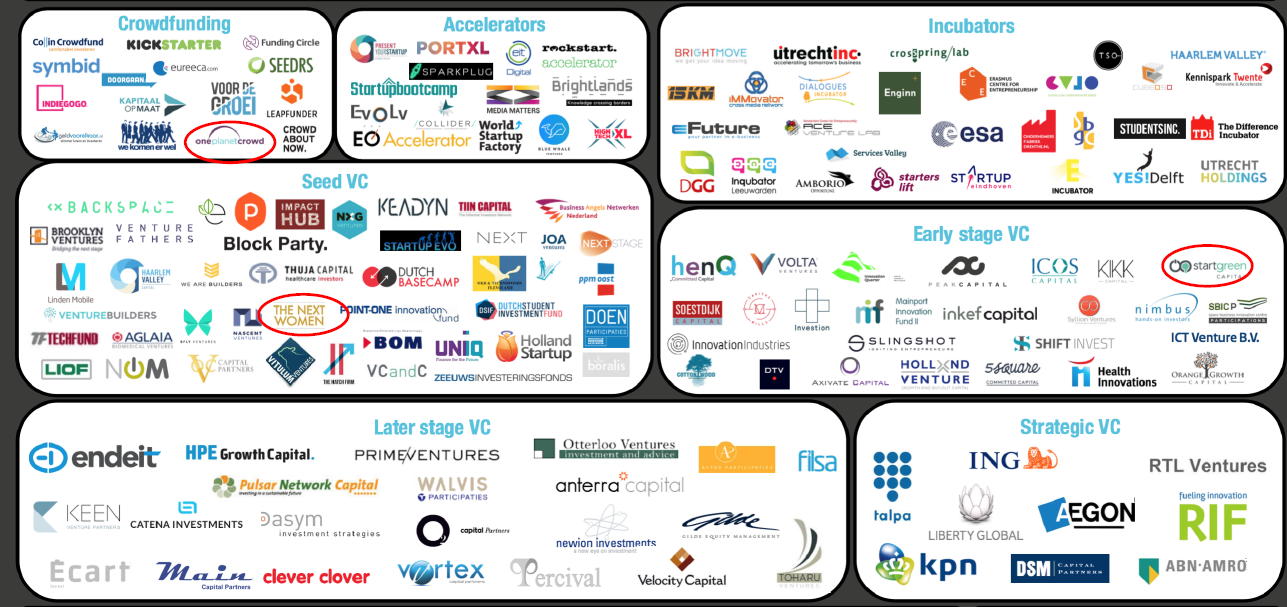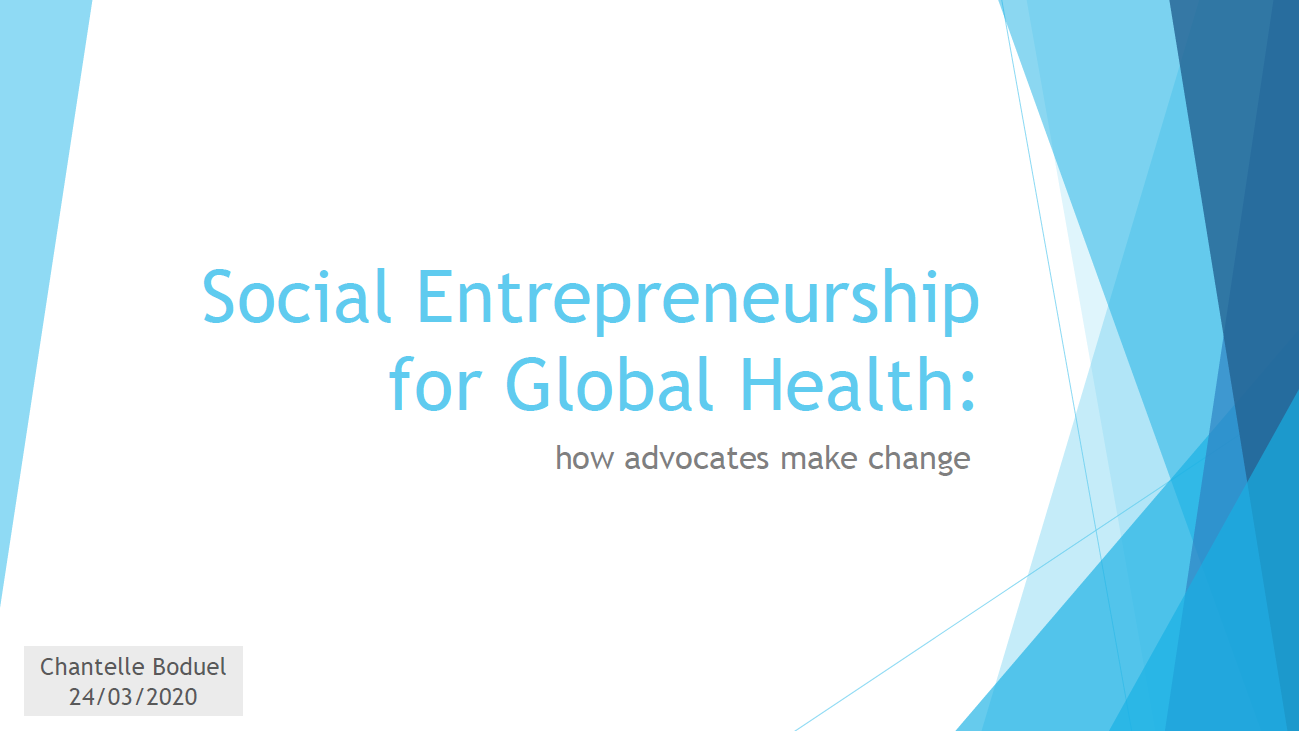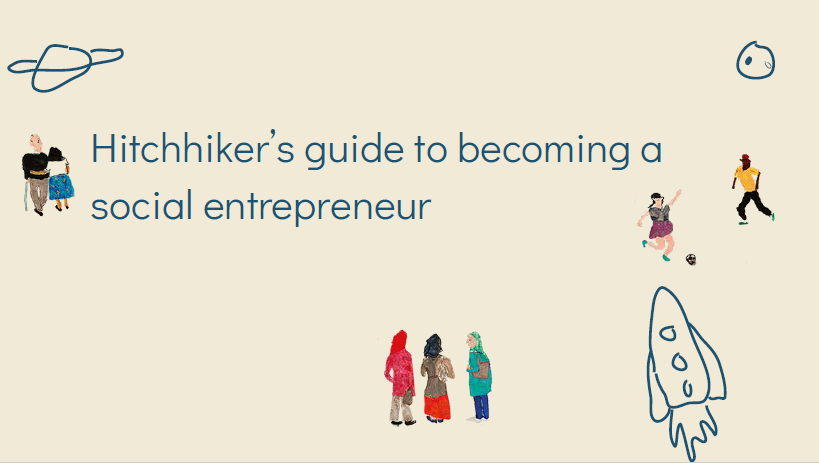This hub provides online access to research and education integrated training and educational resources of the Lab @ UNU-MERIT.
Innovation and Entrepreneurship for Sustainability Transitions
May 27, 2021
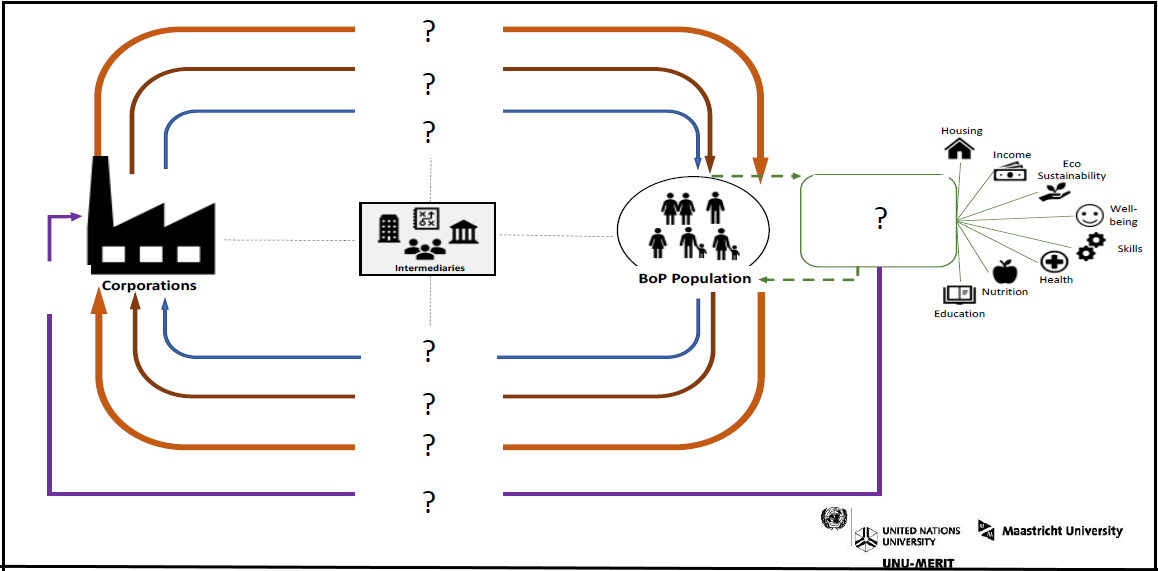 Bruder, M. (2021). Sustainable Business at the Base of the Pyramid, [PDF], The Lab, UNU-MERIT, 2021
Bruder, M. (2021). Sustainable Business at the Base of the Pyramid, [PDF], The Lab, UNU-MERIT, 2021
April 22, 2021
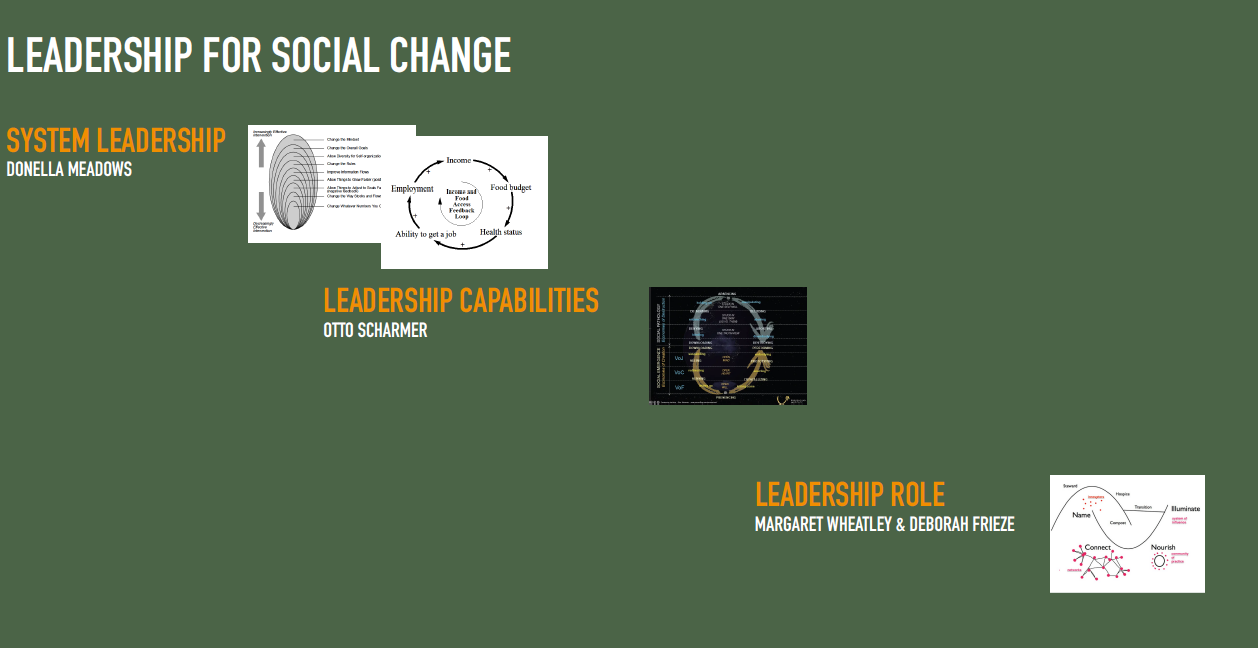 Nekeman I. (2021). Leadership towards Social Change, [PDF], The Lab, UNU-MERIT, 2021
Nekeman I. (2021). Leadership towards Social Change, [PDF], The Lab, UNU-MERIT, 2021
December 16, 2020
Kemp R. (2020). On Design and Human-Centred Governance , [PDF], The Lab, UNU-MERIT, 2020
November 16, 2020
Türkeli S. (2020). Techno-Legal Frontiers and Techno-Moral Futures of Sustainable Financial Transition, [PDF] The Lab, UNU-MERIT, 2020 (VUB Money and the Law Guest Lecture)
May 20, 2020
Planko J. (2020). Collective system building [PDF] The Lab, UNU-MERIT, 2020.
May 18, 2020
Velter M. (2020). Creating Sustainable Value through Business Model Innovation: the Role of Boundary Work [PDF] The Lab, UNU-MERIT, 2020
April 15, 2020
 Hoogenstrijd T. (2020). TSH Changemaker Challenge 2020 | 10 Cases, [PDF], The Lab, UNU-MERIT, 2020
Hoogenstrijd T. (2020). TSH Changemaker Challenge 2020 | 10 Cases, [PDF], The Lab, UNU-MERIT, 2020
April 1, 2020
Ugur N. (2020). Social Entrepreneurship , [PDF], The Lab, UNU-MERIT, 2020
March 23, 2020
Boduel C. (2020). Social Entrepreneurship for Global Health, [PDF], The Lab, UNU-MERIT, 2020
March 19, 2020
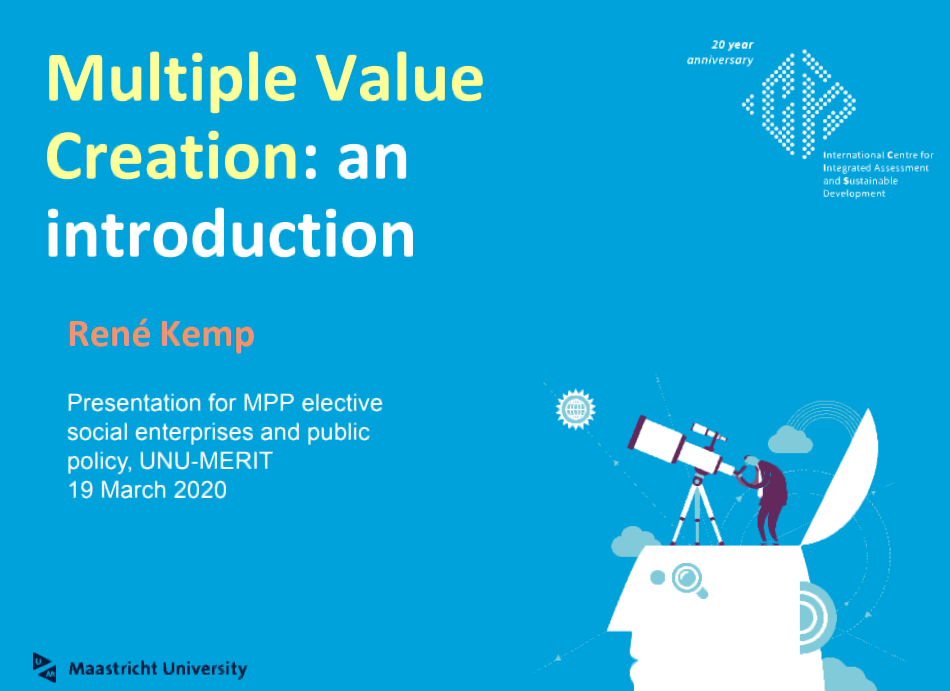 Kemp R. (2020). Multiple Value Creation: An introduction [PDF], The Lab, UNU-MERIT, 2020
Kemp R. (2020). Multiple Value Creation: An introduction [PDF], The Lab, UNU-MERIT, 2020
March 18, 2020
Droell L. (2020). Hitchhiker’s Guide to Social Entrepreneurship , [PDF], The Lab, UNU-MERIT, 2020
March 16, 2020
Baker-Shelley A. (2020). Sustainability, Entrepreneurship and Transformation [PDF] , The Lab, UNU-MERIT, 2020
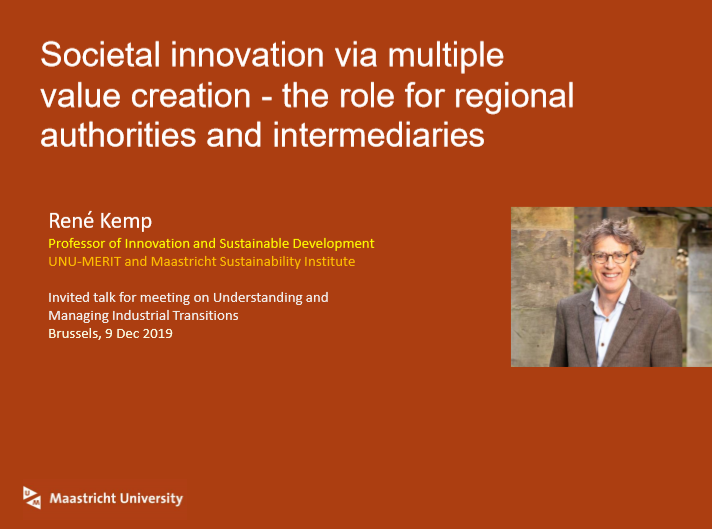 Kemp R. (2019). Societal Innovation via Multiple Value Creation – The Role for Regional Authorities and Intermediaries [PDF], The Lab, UNU-MERIT, 2019
Kemp R. (2019). Societal Innovation via Multiple Value Creation – The Role for Regional Authorities and Intermediaries [PDF], The Lab, UNU-MERIT, 2019
Presentation at JRC Meeting on Understanding and Managing Industrial Transitions, Brussels, December, 2019
May 28, 2019
 Baker-Shelley A. (2019). Changing the system from Within: Intrinsic Competencies for Transformation towards Sustainability [PDF] , The Lab, UNU-MERIT, 2019
Baker-Shelley A. (2019). Changing the system from Within: Intrinsic Competencies for Transformation towards Sustainability [PDF] , The Lab, UNU-MERIT, 2019
Category: Transformation and Sustainability
Reference project: Sino-European Circular Economy and Resource Efficiency, “European Global Transition Network on Eco-Innovation, Green Economy and Sustainable Development
April 26, 2019
 Student Forum Maastricht (2019): Reducing Food Waste: Towards a Circular EU
Student Forum Maastricht (2019): Reducing Food Waste: Towards a Circular EU
Reference project: Sino-European Circular Economy and Resource Efficiency, “European Global Transition Network on Eco-Innovation, Green Economy and Sustainable Development
Selected Research Projects:



 While in the ORGANEXT project the focus was on Technology and Economic Valorization opportunities and to a lesser extent on the training aspect, the target of the ORGA | NEXT | GENERATION project is to mainly put the attention on the development of a sustainable and forward-looking cross-border academic knowledge platform for the training of a new generation of scientists/engineers/technicians with expertise in the field of nanomaterials, innovative deposition technologies for new electro-optical applications, printable electronics and thin film solar cells to stimulate the Meuse-Rhine Euregion and to support in a further development to a top technology region in this domain. (http://organext.org/)
While in the ORGANEXT project the focus was on Technology and Economic Valorization opportunities and to a lesser extent on the training aspect, the target of the ORGA | NEXT | GENERATION project is to mainly put the attention on the development of a sustainable and forward-looking cross-border academic knowledge platform for the training of a new generation of scientists/engineers/technicians with expertise in the field of nanomaterials, innovative deposition technologies for new electro-optical applications, printable electronics and thin film solar cells to stimulate the Meuse-Rhine Euregion and to support in a further development to a top technology region in this domain. (http://organext.org/) The European research project EMInInn tracks the past development and diffusion through the economy of pervasive innovations that can be expected to have had an appreciable positive or negative environmental impact. The aim of the project was to generate deeper insights into the role of innovation in decoupling environmental impacts from economic growth, helping policy makers to both assess the benefits from past innovations as well as maximize benefits from present and emerging innovations.(http://www.emininn.eu/index.php)
The European research project EMInInn tracks the past development and diffusion through the economy of pervasive innovations that can be expected to have had an appreciable positive or negative environmental impact. The aim of the project was to generate deeper insights into the role of innovation in decoupling environmental impacts from economic growth, helping policy makers to both assess the benefits from past innovations as well as maximize benefits from present and emerging innovations.(http://www.emininn.eu/index.php)
